Keywords: Indigenous Working Group
-
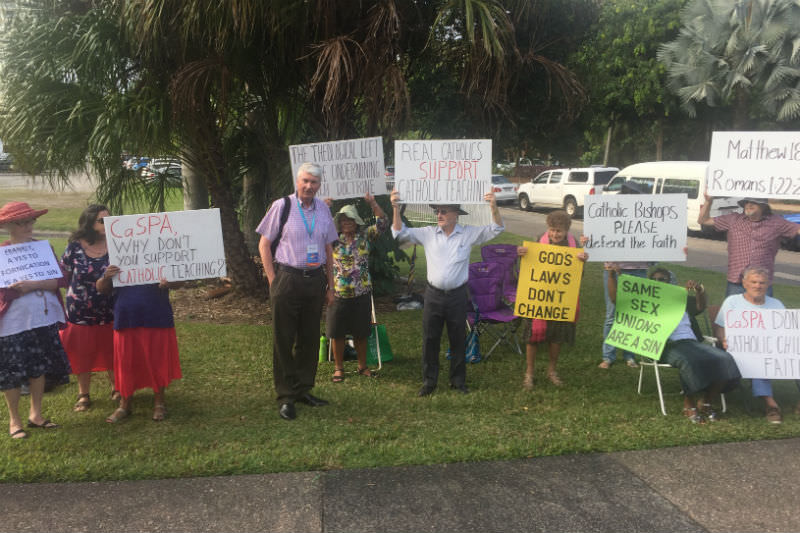
RELIGION
- Frank Brennan
- 16 July 2018
3 Comments
'Kristina Keneally was unapologetic in putting the place of women in our church front and centre. And so we should.' Tropical and Topical, 2018 National Catholic Principals' Conference, Cairns Convention Centre, 16 July 2018.
READ MORE
-
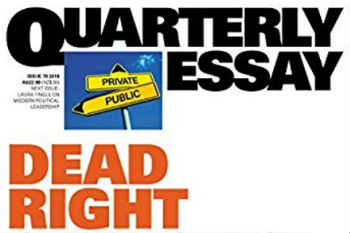
AUSTRALIA
- Andrew Hamilton
- 26 June 2018
35 Comments
Just in time to arrest ponderous musings about Western Civilisation, up jumps Denniss' cheeky funeral oration for the neoliberal settlement. His target is the assumption that an economy based on unregulated competition between individuals will benefit society. He does not spend time arguing with the theory, but points to the results.
READ MORE 
-
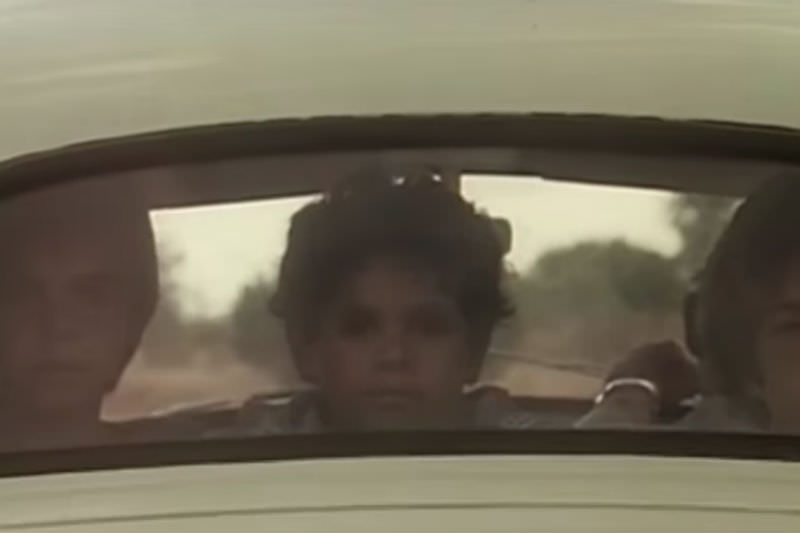
AUSTRALIA
- Michele Madigan
- 24 April 2018
13 Comments
Commemorating the 25th anniversary of the Royal Commission into Aboriginal Deaths in Custody, NITV re-screened Richard Frankland's 1993 documentary Who Killed Malcolm Smith? Watching it, it became totally clear to me about Manus Island and Nauru. Perhaps as a nation this violence, this contempt of the 'other', is in our DNA.
READ MORE 
-
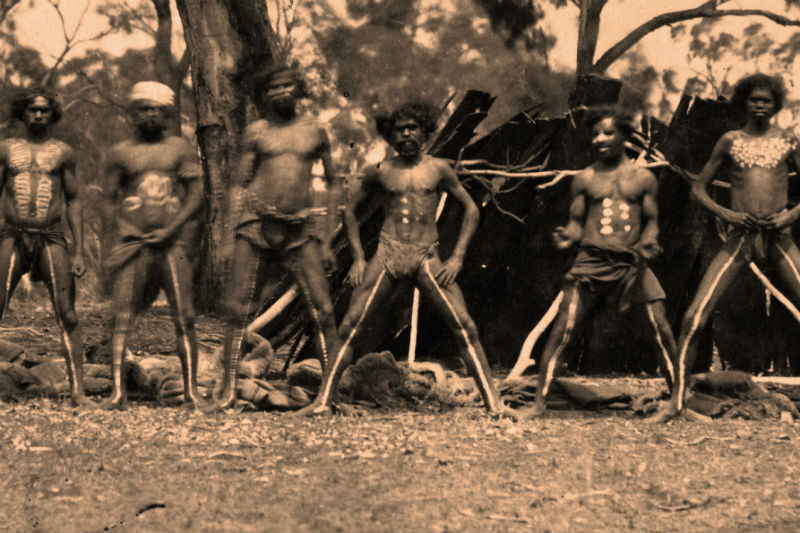
AUSTRALIA
- Andrew Hamilton
- 21 November 2017
4 Comments
Turnbull has been widely criticised for refusing a recommendation by the Referendum Council to enshrine a national Indigenous representative council, saying it was 'contrary to the principles of equality and citizenship'. A recent book provides a rich perspective for reflecting on his decision.
READ MORE 
-
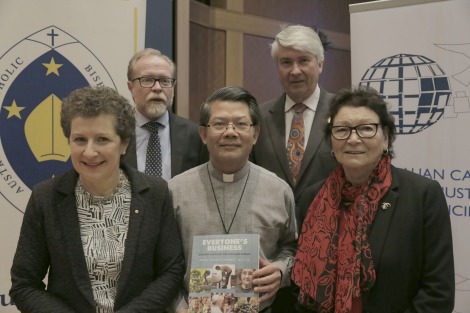
RELIGION
- Frank Brennan
- 11 September 2017
2 Comments
The real call of Everyone's Business is to move beyond them and us to admitting that there is only us. If we are truly to build an inclusive and sustainable economy, it can't be just those in full time paid employment who are part of that economy. We take seriously the principles of neo-liberalism, letting the market decide. But we set limits on the market for the common good.
READ MORE
-
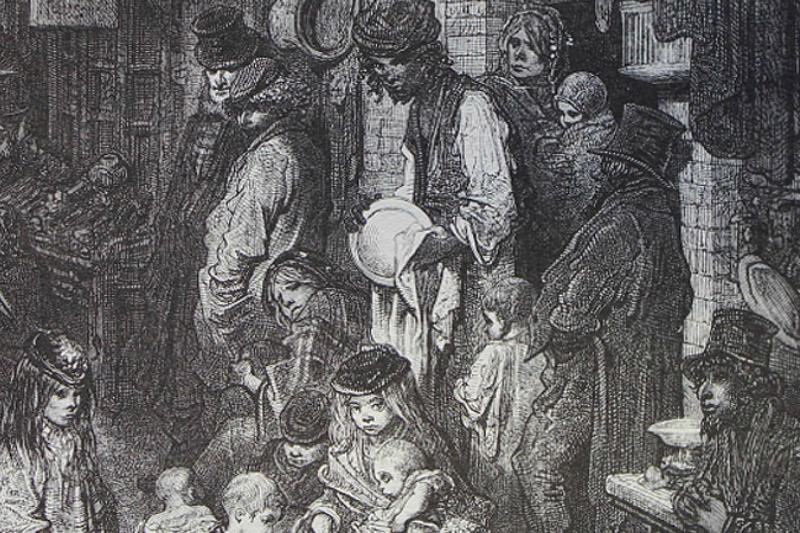
AUSTRALIA
- Andrew Hamilton
- 05 July 2017
17 Comments
A regular feature in Australian politics is the attempt to save money by penalising people who are struggling with life. It is usually accompanied by disparagement of the groups who are targeted. The strategy has a long history that provides a context. In 19th century England, a system was established that would encourage people to seek work by deterring them from seeking help. Central to this was the establishment of workhouses where the conditions would be more unpleasant than in any form of work.
READ MORE 
-

AUSTRALIA
- Frank Brennan
- 31 May 2017
6 Comments
Indigenous leaders this last week have called for the creation of two new legal entities. They want a First Nations Voice enshrined in the Constitution, and a Makarrata Commission set up by legislation. The Makarrata Commission would supervise agreement making between governments and First Nations and engage in truth telling about history. The envisaged destination is a national Makarrata (or treaty). So the immediate constitutional issue is the creation of the First Nations Voice. There is no point in proceeding with a referendum on a question which fails to win the approval of Indigenous Australia. Neither is there any point in proceeding with a referendum which is unlikely to win the approval of the voting public.
READ MORE
-
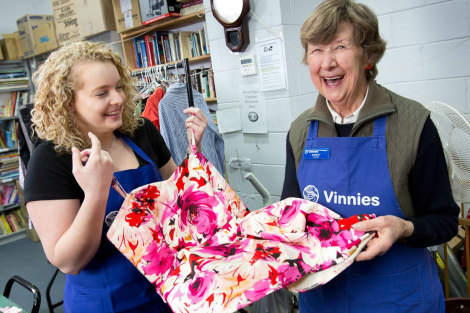
AUSTRALIA
- Fatima Measham
- 27 April 2017
4 Comments
A significant portion of the work that goes on in our economy is voluntary. It features in many contexts, such as social welfare, mentoring, animal welfare, landcare, local sport, and arts and literary activities. It can be hard to make a case for volunteering at a time when labour exploitation is rife. Students, migrants and Indigenous people, who need to establish work experience, are particularly vulnerable when it comes to unpaid work. This does not mean that volunteer work can never be meaningful.
READ MORE 
-

ENVIRONMENT
- Frank Brennan
- 28 November 2016
'No matter what the economic, political and legal problems confronted by modern day India, our response can be improved by an application of the key principles and norms developed in the international law of trade and human rights, helping to enunciate the realm of law, regulation and political accountability, enhancing public scrutiny providing the right environment for doing business.' Frank Brennan presents the 25th JRD Tata Oration, Xavier School of Management, Jamshedpur, India, 26 November 2016.
READ MORE
-
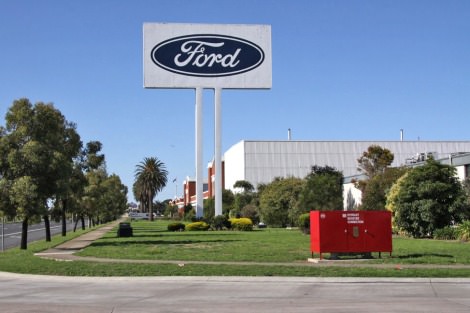
AUSTRALIA
- Rick Measham
- 07 November 2016
28 Comments
Growing up in Geelong, many friends worked at Ford, or Alcoa, Pilkington or any of the other allied suppliers. As each of these stopped manufacturing in Victoria's second city, employers and governments promised retraining. But where are the jobs? Factories are quickly moving to a 'lights out' operation, with no lights, no air conditioning — and no humans. Modelling suggests nearly 5000 Geelong residents will lose their jobs to the decline in manufacturing before the end of 2017, and 200,000 nationwide. Can we find new-economy jobs for every one of them?
READ MORE
-
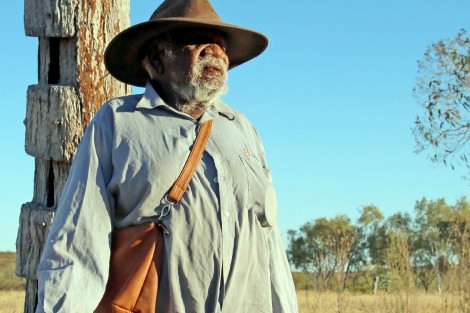
AUSTRALIA
- Moira Rayner
- 23 August 2016
9 Comments
I had been in WA for exactly a year when the local newspaper reported that a white guy had led about 200 people off Wave Rock station. Coming out of the comfortable myth that my home country of New Zealand was not racist, I was amazed to learn that Australia's Indigenous people were obliged to work without industrial protections. In 1966 it was the British Vesteys Group that had been exploiting Aboriginal people: today it is the State in the guise of 'community development', aka work for the dole.
READ MORE 
-
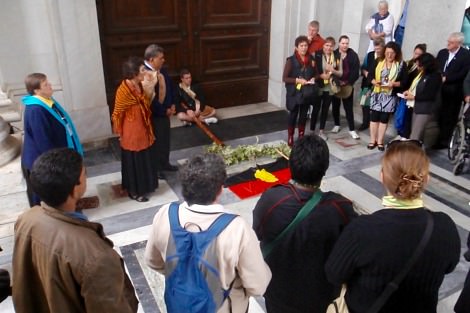
INTERNATIONAL
- Frank Brennan
- 27 July 2016
2 Comments
The violence at the pastoral frontier of the British colonies here in Australia was all pervasive. 228 years after it commenced, we are still experiencing the after-effects. When I started advocating Aboriginal rights here in Australia almost 40 years ago, the prevailing wisdom was that the missions and missionaries were all bad news. It will come as no surprise that I have always doubted that Aborigines were well rid of religion and the missionaries in all circumstances.
READ MORE